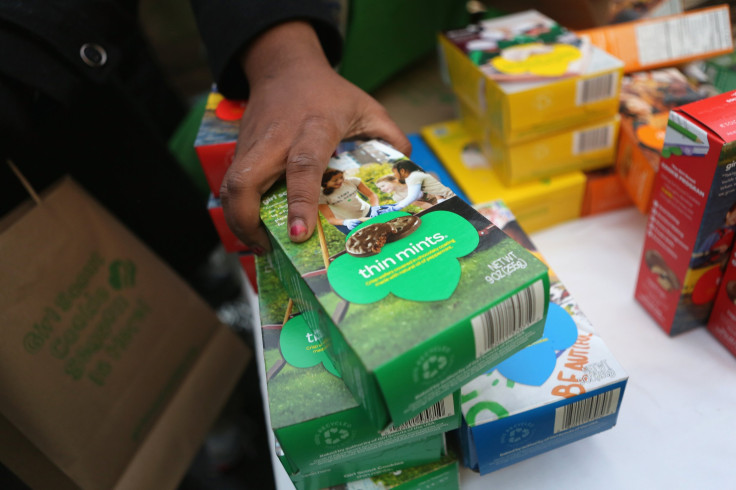Buying Girl Scouts Cookies Could Be Unethical. Here's Why
Girl Scout Cookies have come under scrutiny for the way that they are produced after an investigation showed that child labor was employed by some of the products’ manufacturers.
On a standard package of Girl Scout Cookies, it bears the label “mixed” and “certified sustainable” next to the ingredient palm oil. While sustainable would indicate that the rainforest is not being harmed in the production of palm oil, “mixed” meant that the oil is blended from unsustainable sources.
These unsustainable sources employ children in Indonesia and Malaysia, which supply 85% of the palm oil consumed globally, for little or no pay. The children pick oil kernels, sometimes for as long as 12 hours a day, an investigative report from the Associated Press revealed.
The kernels are sharp and cut the children’s hands, leaving them bloodied as they wear no gloves while they push wheelbarrows of the fruit that are sometimes two to three times their weight, according to the report. Teen boys slice the fruit from branches with sickle blades on long poles and harvest bunches so large they can crush their body weight, the news outlet said.
Child labor is common for the palm oil industry that is valued at $65 billion globally. It has been deemed a problem by the U.S. government as well as the United Nations. In a day, in some cases, an entire family earns less than $5 a day – the cost of one box of Girl Scout cookies, the report said.
The discovery was made by 14-year-old Olivia Chaffin, a Tennessee-based Girl Scout who told the AP that “The cookies deceive a lot of people. They think it’s sustainable, but it isn’t.”
But she is not the first to question the use of palm oil in Girl Scout cookies. The AP said that about 20 years ago, two Michigan Girl Scouts stopped selling S’mores and other cookie flavors due to rainforest destruction and the killing of endangered animals in relation to palm oil production in the same countries.
After several years, the Girl Scouts agreed to use sustainable palm oil on the 200 million boxes of cookies it sells, which brings in about $800 million dollars for the organization.
Chaffin has since started an online petition, and her Girl Scout troop has stopped selling the cookies.
“I thought Girl Scouts was supposed to be about making the world a better place,” Chaffin said. “But this isn’t at all making the world better.”
Both Ferrero and Weston Foods, the makers of the Girl Scout cookies, did not comment on the child labor issue but told the news outlet they were committed to sourcing only certified sustainable palm oil.
According to the investigation, Indonesian government officials said there is no idea how many children work in the palm oil industry, but the U.N. International Labor Organization has estimated this number to be about 1.5 million aged 10 to 17 years old. Overall, the palm oil industry employs about 16 million people in the country.
A 2018 Malaysia government report obtained by the AP indicated that more than 33,000 children work in the palm oil fields, with nearly half aged 5 to 11 years old.
Palm oil is used in about half of all products sold in supermarket stores and in about three out of four cosmetic brands. It appears on product labels under more than 200 different ingredient names.

© Copyright IBTimes 2024. All rights reserved.




















